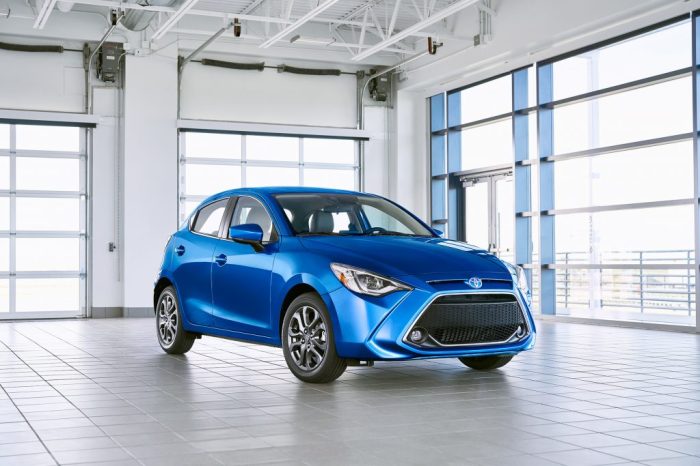For college students, finding the perfect car can be a daunting task. With limited budgets and a desire for reliability, fuel efficiency, and safety, navigating the automotive landscape can be overwhelming. This guide will explore the best cars for college students on a budget, providing essential information to help you make an informed decision.
Budget-Friendly Options

College students often face financial constraints, making it essential to find budget-friendly car options. Several affordable models meet the needs of students, offering reliable transportation without breaking the bank.
Affordable Car Models
- Honda Civic: Known for its fuel efficiency, reliability, and compact size, making it ideal for navigating college campuses and urban areas.
- Toyota Corolla: Another fuel-efficient and reliable option, with a spacious interior and a variety of trim levels to fit different budgets.
- Hyundai Elantra: Offers a stylish design, advanced safety features, and a comfortable interior at a competitive price.
- Kia Rio: A subcompact car that provides excellent fuel economy, a spacious interior, and a budget-friendly price point.
- Chevrolet Spark: The most affordable option on the list, known for its compact size, maneuverability, and surprisingly spacious interior.
These car models offer a combination of affordability, reliability, and features that make them suitable for college students on a budget.
Fuel Efficiency

Fuel efficiency is crucial for college students on a budget. With limited financial resources, every dollar saved on gas can make a significant difference. Cars with better fuel efficiency consume less gasoline, reducing fuel expenses and freeing up more funds for other essential needs like tuition, rent, or textbooks.According to the U.S.
Environmental Protection Agency (EPA), the average fuel consumption rate for new vehicles in 2023 is 25.4 miles per gallon (mpg). However, many fuel-efficient models offer significantly higher mpg ratings, providing substantial savings over time.
Fuel-Efficient Car Models
Some budget-friendly car models with impressive fuel efficiency ratings include:
- Toyota Corolla Hybrid:Up to 53 mpg combined city/highway
- Honda Civic Hybrid:Up to 46 mpg combined city/highway
- Hyundai Elantra Hybrid:Up to 54 mpg combined city/highway
- Kia Forte:Up to 41 mpg combined city/highway
- Volkswagen Jetta:Up to 40 mpg combined city/highway
Choosing a fuel-efficient car can not only save money on gas but also reduce your carbon footprint, contributing to a cleaner environment.
Reliability and Maintenance Costs
Reliability and maintenance costs are crucial factors to consider when choosing a budget-friendly car for college students. Opting for a car with a solid reputation for reliability can save you money and hassle in the long run. Research different car models to assess their reliability ratings from reputable sources like Consumer Reports or J.D.
Power.
Warranty Coverage
Warranty coverage is an important aspect of maintenance costs. Look for cars with extended warranties that cover major components and systems. A comprehensive warranty can provide peace of mind and protect you from unexpected repair expenses.
Repair Frequency
Consider the average repair frequency of different car models. Cars with a history of frequent repairs can be more costly to maintain. Research online forums and owner reviews to gather information about common issues and repair frequency for specific car models.
Parts Availability
Parts availability is essential for timely and affordable repairs. Choose cars with a wide network of dealerships and repair shops that can easily access parts. This ensures that you can get your car fixed quickly and without excessive downtime.
Safety Features
Safety should be a top priority when choosing a car, especially for college students who may be driving in unfamiliar areas or in inclement weather. Essential safety features to consider include airbags, anti-lock brakes, stability control, and traction control.
When comparing different car models, pay attention to their safety ratings and crash test results. The National Highway Traffic Safety Administration (NHTSA) and the Insurance Institute for Highway Safety (IIHS) conduct rigorous crash tests and assign safety ratings to vehicles.
Look for cars that have earned high ratings in both NHTSA and IIHS tests.
Crash Test Ratings
Crash test ratings are an important indicator of a car’s ability to protect its occupants in the event of an accident. The NHTSA conducts frontal, side, and rollover crash tests, and assigns a star rating from 1 to 5 for each test.
The IIHS conducts similar tests, but also includes a small overlap frontal crash test, which simulates a head-on collision with a small object like a tree or pole. Cars that earn a “Good” rating in the IIHS small overlap frontal crash test are considered to provide the highest level of protection in this type of accident.
Insurance Costs
Insurance premiums for college students are typically higher than those for older drivers. This is because young drivers are statistically more likely to be involved in accidents. However, there are a number of factors that can influence insurance costs for college students, including:
- Age:The younger you are, the higher your insurance premiums will be. This is because young drivers are statistically more likely to be involved in accidents.
- Gender:Male drivers typically pay higher insurance premiums than female drivers. This is because male drivers are statistically more likely to be involved in accidents.
- Driving history:If you have a clean driving record, you will likely pay lower insurance premiums. However, if you have been involved in accidents or traffic violations, your insurance premiums will be higher.
- Type of car:The type of car you drive can also affect your insurance premiums.
Sports cars and luxury cars typically have higher insurance premiums than sedans and economy cars.
- Location:Where you live can also affect your insurance premiums. If you live in a high-crime area, you will likely pay higher insurance premiums.
Insurance Premiums for Different Car Models
The following table provides estimates of insurance premiums for different car models that are popular with college students:
| Car Model | Insurance Premium (Annual) |
|---|---|
| Honda Civic | $1,200 |
| Toyota Corolla | $1,300 |
| Hyundai Elantra | $1,400 |
| Ford Focus | $1,500 |
| Chevrolet Cruze | $1,600 |
It is important to note that these are just estimates. Your actual insurance premiums may vary depending on the factors discussed above.
Size and Functionality

When choosing a car for college, size and functionality play a crucial role. Different car sizes offer unique advantages and drawbacks that align with specific needs and preferences.Consider the practicality of hatchbacks, which provide ample cargo space with foldable rear seats.
Sedans offer a balance of space and maneuverability, while SUVs excel in versatility and off-road capabilities.
Hatchbacks
Pros
Compact size for easy parking and maneuverability, spacious cargo area with foldable rear seats.
Cons
Limited rear legroom, potential for road noise.
Sedans
Pros
Comfortable seating, ample trunk space, good fuel efficiency, relatively low insurance costs.
Cons
Less cargo space compared to hatchbacks or SUVs, may not be suitable for bulky items.
SUVs
Pros
Versatile with spacious interiors, higher ground clearance for off-roading, ample cargo capacity.
Cons
Higher fuel consumption, larger size may be challenging to maneuver in tight spaces, higher insurance costs.
Technology and Connectivity: Best Cars For College Students On A Budget
College students today rely heavily on technology for their academic and social lives. Having a car with advanced technology and connectivity features can greatly enhance their experience.Infotainment systems, such as Apple CarPlay and Android Auto, allow students to seamlessly integrate their smartphones with their cars.
This enables them to access navigation, music, messaging, and other apps while keeping their eyes on the road. Bluetooth connectivity allows for hands-free calling and music streaming, ensuring safety and convenience.
Reliable navigation systems are essential for college students who may be unfamiliar with the area or need to find their way to new locations. Built-in navigation systems or smartphone integration can provide turn-by-turn directions, traffic updates, and real-time route optimization.
Resale Value
Resale value is an important consideration for college students who may need to sell their cars in the future. A car with a high resale value will retain more of its value over time, making it easier to sell and recoup some of the initial investment.
According to Kelley Blue Book, some of the car models with the highest resale value for 2023 include the Toyota Camry, Honda Civic, Subaru Outback, and Jeep Wrangler. These cars are known for their reliability, durability, and popularity in the used car market.
Ownership Costs
When determining the overall cost of owning a car, it’s essential to consider not just the initial purchase price but also the ongoing expenses associated with it. These include fuel costs, maintenance expenses, insurance premiums, and depreciation. By comparing the total ownership costs of different car models, you can make an informed decision that fits your budget and lifestyle.
Fuel Costs
Fuel is a major expense for car owners, and the fuel efficiency of a vehicle can significantly impact its total ownership cost. Consider the fuel economy of different models, expressed in miles per gallon (MPG) or kilometers per liter (kmpl), and calculate the estimated fuel costs based on your anticipated annual mileage and fuel prices in your area.
Maintenance Expenses
Regular maintenance is crucial to keep your car running smoothly and reliably. Factor in the estimated maintenance costs, including routine services, repairs, and potential major overhauls. Some cars may require more frequent or expensive maintenance, so research the reliability and maintenance history of different models.
Insurance Costs
Insurance premiums vary depending on factors such as the car’s value, safety features, and your driving record. Get quotes from multiple insurance providers to compare costs and find the best deal.
Depreciation
Depreciation refers to the decrease in a car’s value over time. The rate of depreciation varies among different models and depends on factors like brand, model, age, and mileage. Consider the estimated depreciation of different vehicles to determine their long-term financial impact.By evaluating the total ownership costs, you can make an informed decision about which car best aligns with your budget and financial goals.
Choose a model that offers a balance of affordability, fuel efficiency, reliability, and low maintenance and insurance costs.
Lifestyle Considerations

For college students, selecting a car involves balancing practical requirements with lifestyle preferences. Daily commute, campus parking availability, and recreational activities all influence the choice of vehicle.
Students with long commutes may prioritize fuel efficiency and reliability, while those with limited campus parking options may prefer compact or fuel-efficient vehicles. Recreational enthusiasts, on the other hand, might consider vehicles with ample cargo space or all-wheel drive for outdoor adventures.
Daily Commute, Best cars for college students on a budget
Consider the distance and duration of your daily commute to and from campus. If you have a long commute, fuel efficiency and reliability become more important factors.
Campus Parking
Research campus parking availability and costs. If parking is limited or expensive, consider a smaller vehicle or one with good fuel economy.
Recreational Activities
If you enjoy outdoor activities or weekend getaways, consider a vehicle with ample cargo space, all-wheel drive, or other features that enhance recreational experiences.
Concluding Remarks

Choosing the right car for college can be a smart investment, providing reliable transportation, saving money on fuel and maintenance, and enhancing your campus experience. By considering the factors Artikeld in this guide, you can find the perfect car that meets your needs and budget, allowing you to focus on your studies and enjoy your college years.
Popular Questions
What are the most important factors to consider when choosing a car for college?
Budget, fuel efficiency, reliability, safety, and size.
What are some of the most affordable cars for college students?
Honda Civic, Toyota Corolla, Hyundai Elantra, Kia Forte, Mazda3.
How can I save money on fuel costs?
Choose a fuel-efficient car, drive less, and use public transportation or carpool when possible.